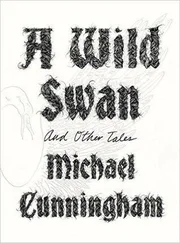George MacDonald - Stephen Archer, and Other Tales
Здесь есть возможность читать онлайн «George MacDonald - Stephen Archer, and Other Tales» — ознакомительный отрывок электронной книги совершенно бесплатно, а после прочтения отрывка купить полную версию. В некоторых случаях можно слушать аудио, скачать через торрент в формате fb2 и присутствует краткое содержание. Жанр: foreign_prose, foreign_religion, foreign_antique, на английском языке. Описание произведения, (предисловие) а так же отзывы посетителей доступны на портале библиотеки ЛибКат.
- Название:Stephen Archer, and Other Tales
- Автор:
- Жанр:
- Год:неизвестен
- ISBN:нет данных
- Рейтинг книги:4 / 5. Голосов: 1
-
Избранное:Добавить в избранное
- Отзывы:
-
Ваша оценка:
- 80
- 1
- 2
- 3
- 4
- 5
Stephen Archer, and Other Tales: краткое содержание, описание и аннотация
Предлагаем к чтению аннотацию, описание, краткое содержание или предисловие (зависит от того, что написал сам автор книги «Stephen Archer, and Other Tales»). Если вы не нашли необходимую информацию о книге — напишите в комментариях, мы постараемся отыскать её.
Stephen Archer, and Other Tales — читать онлайн ознакомительный отрывок
Ниже представлен текст книги, разбитый по страницам. Система сохранения места последней прочитанной страницы, позволяет с удобством читать онлайн бесплатно книгу «Stephen Archer, and Other Tales», без необходимости каждый раз заново искать на чём Вы остановились. Поставьте закладку, и сможете в любой момент перейти на страницу, на которой закончили чтение.
Интервал:
Закладка:
As he was thus thinking with himself, a carriage came suddenly from a side street into the crowd, and while he stared at it, thinking Alice might be sitting inside it while he was tramping the pavement alone, she passed him on the other side on foot—was actually pushed against him: he looked round, and saw a young woman, carrying a small bag, disappearing in the crowd. "There's an air of Alice about her " said John to himself, seeing her back only. But of course it couldn't be Alice; for her he must look in the carriages now! And what a fool he was: every young woman reminded him of the one he had lost! Perhaps if he was to call the next day—Polly was a good-natured creature—he might hear some news of her.
It had been a troubled fortnight with Mrs. Greatorex. She wished much that she could have talked to her husband more freely, but she had not learned to feel at home with him. Yet he had been kinder and more attentive than usual all the time, so much so that Letty thought with herself—if she gave him a boy, he would certainly return to his first devotion. She said boy , because any one might see he cared little for Phosy. She had never discovered that he was disappointed in herself, but, since her disregard of his wishes had brought evil upon her, she had begun to suspect that he had some ground for being dissatisfied with her. She never dreamed of his kindness as the effort of a conscientious nature to make the best of what could not now be otherwise helped. Her own poverty of spirit and lack of worth achieved, she knew as little of as she did of the riches of Michael the archangel. One must have begun to gather wisdom before he can see his own folly.
That evening she was seated alone in the drawing-room, her husband having left her to smoke his cigar, when the butler entered and informed her that Alice had returned, but was behaving so oddly that they did not know what to do with her. Asking wherein her oddness consisted, and learning that it was mostly in silence and tears, she was not sorry to gather that some disappointment had befallen her, and felt considerable curiosity to know what it was. She therefore told him to send her upstairs.
Meantime Polly, the housemaid, seeing plainly enough from her return in the middle of her holiday, and from her utter dejection, that Alice's expectations had been frustrated, and cherishing no little resentment against her because of her uppishness on the first news of her good fortune, had been ungenerous enough to take her revenge in a way as stinging in effect as bitter in intention; for she loudly protested that no amount of such luck as she pretended to suppose in Alice's possession, would have induced her to behave herself so that a handsome honest fellow like John Jephson should be driven to despise her, and take up with her betters. When her mistress's message came, Alice was only too glad to find refuge from the kitchen in the drawing-room.
The moment she entered, she fell on her knees at the foot of the couch on which her mistress lay, covered her face with her hands, and sobbed grievously.
Nor was the change more remarkable in her bearing than in her person. She was pale and worn, and had a hunted look—was in fact a mere shadow of what she had been. For a time her mistress found it impossible to quiet her so as to draw from her her story: tears and sobs combined with repugnance to hold her silent.
"Oh, ma'am!" she burst out at length, wringing her hands, "how ever can I tell you? You will never speak to me again. Little did I think such a disgrace was waiting me!"
"It was no fault of yours if you were misinformed," said her mistress, "or that your uncle was not the rich man you fancied."
"Oh, ma'am, there was no mistake there! He was more than twice as rich as I fancied. If he had only died a beggar, and left things as they was!"
"Then he didn't leave it to his nephews and nieces as they told you?—Well, there's no disgrace in that."
"Oh! but he did, ma'am: that was all right; no mistake there either, ma'am.—And to think o' me behavin' as I did—to you and master as was so good to me! Who'll ever take any more notice of me now, after what has come out—as I'm sure I no more dreamed on than the child unborn!"
An agonized burst of fresh weeping followed, and it was with prolonged difficulty, and by incessant questioning, that Mrs. Greatorex at length drew from her the following facts.
Before Alice and her brother could receive the legacy to which they laid claim, it was necessary to produce certain documents, the absence of which, as of any proof to take their place, led to the unavoidable publication of a fact previously known only to a living few—namely, that the father and mother of Alice Hopwood had never been married, which fact deprived them of the smallest claim on the legacy, and fell like a millstone upon Alice and her pride. From the height of her miserable arrogance she fell prone—not merely hurled back into the lowly condition from which she had raised her head only to despise it with base unrighteousness, and to adopt and reassert the principles she had abhorred when they affected herself—not merely this, but, in her own judgment at least, no longer the respectable member of society she had hitherto been justified in supposing herself. The relation of her father and mother she felt overshadow her with a disgrace unfathomable—the more overwhelming that it cast her from the gates of the Paradise she had seemed on the point of entering: her fall she measured by the height of the social ambition she had cherished, and had seemed on the point of attaining. But it is not an evil that the devil's money, which this legacy had from the first proved to Alice, should turn to a hot cinder in the hand. Rarely had a more haughty spirit than hers gone before a fall, and rarely has the fall been more sudden or more abject. And the consciousness of the behaviour into which her false riches had seduced her, changed the whip of her chastisement into scorpions. Worst of all, she had insulted her lover as beneath her notice, and the next moment had found herself too vile for his. Judging by herself, in the injustice of bitter humiliation she imagined him scoffing with his mates at the base-born menial who would set up for a fine lady. But had she been more worthy of honest John, she would have understood him better. As it was, no really good fortune could have befallen her but such as now seemed to her the depth of evil fortune. Without humiliation to prepare the way for humility, she must have become capable of more and more baseness, until she lost all that makes life worth having.
When Mrs. Greatorex had given her what consolation she found handy, and at length dismissed her, the girl, unable to endure her own company, sought the nursery, where she caught Sophy in her arms and embraced her with fervour. Never in her life having been the object of any such display of feeling, Phosy was much astonished: when Alice had set her down and she had resumed her seat by the fireside, she went on staring for a while—and then a strange sort of miming ensued.
It was Phosy's habit—one less rare with children than may by most be imagined—to do what she could to enter into any state of mind whose shows were sufficiently marked for her observation. She sought to lay hold of the feeling that produced the expression: less than the reproduction of a similar condition in her own imaginative sensorium, subject to her leisurely examination, would in no case satisfy the little metaphysician. But what was indeed very odd was the means she took for arriving at the sympathetic knowledge she desired. As if she had been the most earnest student of dramatic expression through the facial muscles, she would sit watching the countenance of the object of her solicitude, all the time, with full consciousness, fashioning her own as nearly as she could into the lines and forms of the other: in proportion as she succeeded, the small psychologist imagined she felt in herself the condition that produced the phenomenon she observed—as if the shape of her face cast inward its shadow upon her mind, and so revealed to it, through the two faces, what was moving and shaping in the mind of the other.
Читать дальшеИнтервал:
Закладка:
Похожие книги на «Stephen Archer, and Other Tales»
Представляем Вашему вниманию похожие книги на «Stephen Archer, and Other Tales» списком для выбора. Мы отобрали схожую по названию и смыслу литературу в надежде предоставить читателям больше вариантов отыскать новые, интересные, ещё непрочитанные произведения.
Обсуждение, отзывы о книге «Stephen Archer, and Other Tales» и просто собственные мнения читателей. Оставьте ваши комментарии, напишите, что Вы думаете о произведении, его смысле или главных героях. Укажите что конкретно понравилось, а что нет, и почему Вы так считаете.












